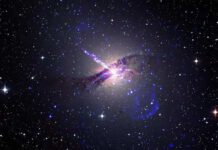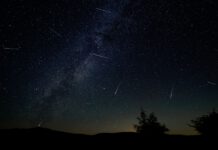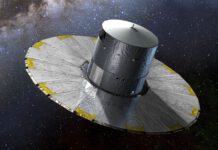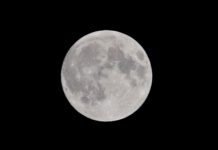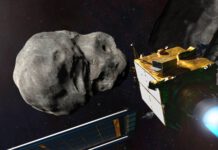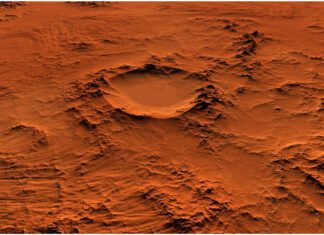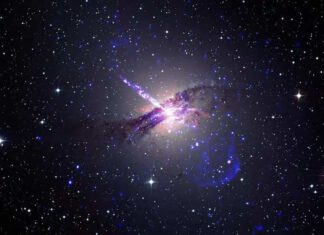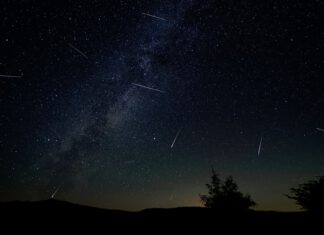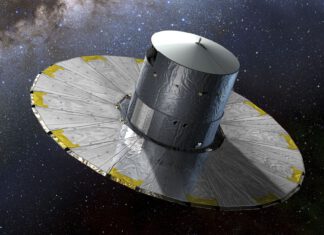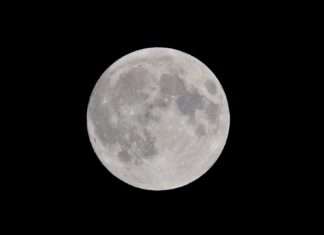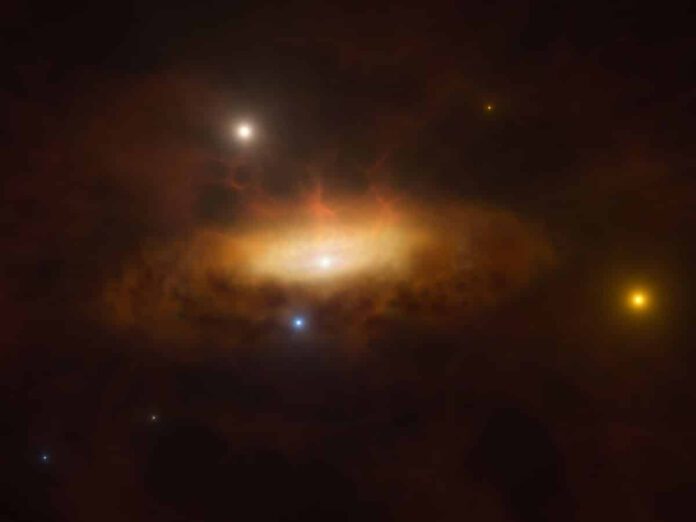
Astronomers Potentially Witness Black Hole Awakening
For the first time, astronomers might have observed the awakening of a black hole. Recently, researchers have possibly witnessed the black hole at the center of the otherwise inconspicuous galaxy SDSS1335+0728 becoming active. This significant observation is detailed in the journal Astronomy & Astrophysics.
Brightness Fluctuation
“Imagine observing a distant galaxy for years, always seeing it as calm and inactive,” says researcher Paula Sánchez Sáez. “Then suddenly, its core starts to show dramatic brightness changes in a way you’ve never seen before.” While this might sound like the plot of a thrilling science fiction movie, for Sánchez Sáez and her colleagues, it marked the beginning of an exciting scientific investigation. These brightness changes they observed were indeed happening in reality.
Challenging to Interpret
Initially, these brightness changes were not easy to interpret. Although researchers often observe galaxies brightening—due to events like supernovae or tidal disruption events (where a star ventures too close to a black hole and is torn apart)—the brightness change in SDSS1335+0728 was distinct. Typically, supernovae or tidal disruption events influence brightness for several tens of days up to a few hundred days. However, the brightness change in SDSS1335+0728 persisted. Even about four years after the researchers first noted the increase, the brightness continued to rise!
Unprecedented Observations
The researchers also observed previously unseen variations in brightness. SDSS1335+0728 now emits significantly more light at ultraviolet, optical, and infrared wavelengths than it did a few years ago. Additionally, in February of this year, the galaxy started emitting X-rays. “This behavior is unprecedented,” says Sánchez Sáez.
A New Phenomenon
There is really only one explanation for this phenomenon: The black hole at the heart of this galaxy is becoming active. “If this is indeed the case, it would be the first time we’ve observed a massive black hole awakening,” says researcher Lorena Hernández García.
Although the observed brightness change in SDSS1335+0728 is best explained by the awakening of the black hole at its center, the researchers are cautious. Other plausible explanations for the brightness change cannot be completely ruled out. For instance, it could be an extraordinarily slow tidal disruption event or another unknown process. Follow-up observations are necessary to confirm whether we have indeed witnessed a black hole awakening for the first time. “We expect that instruments like MUSE from the VLT (Very Large Telescope) or those of the upcoming Extremely Large Telescope (ELT) will be crucial for understanding why this galaxy’s brightness is increasing,” states Sánchez Sáez.


